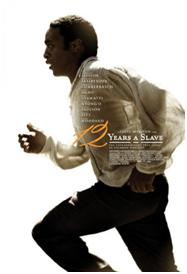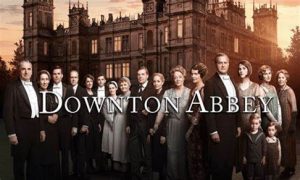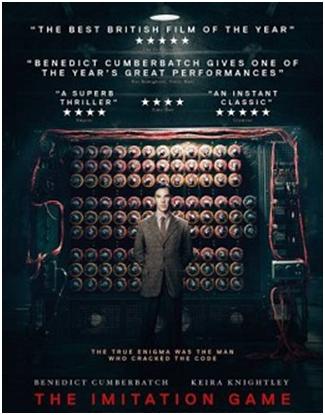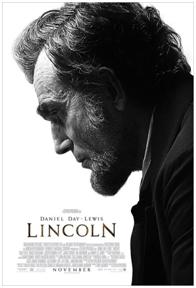 There is a story that is told in my family about my great-grandfather, William Cunningham, who found that his new wife, Isabella Cameron, came complete with a slave plantation in British Guiana. My great-grandfather freed the slaves. He did a few another things, this man from Glasgow, but that is another story.
There is a story that is told in my family about my great-grandfather, William Cunningham, who found that his new wife, Isabella Cameron, came complete with a slave plantation in British Guiana. My great-grandfather freed the slaves. He did a few another things, this man from Glasgow, but that is another story.
So we went to our local cinema to see the Oscar nominated film, 12 Years a Slave, starring Chiwetel Ejiofor as Solomon Northrup. Solomon is a good, honest decent hard working citizen of New York State. He has a wife and two delightful children. He is also black. The year is 1841, twenty years before the start of the American Civil War. Solomon is enticed into going to Washington, where he is kidnapped and delivered into slavery. During the next 12 years, Solomon never gives up his humanity and decency, despite the deprivations and cruelty forced upon him. Eventually he manages to persuade a white Canadian, a carpenter called Bass to write to a list of people in Saratoga, New York. Liberation followed..
The film was beautiful. When Solomon has to whip Patsee, another slave, the camera was on Solomon. Any other director would have relished the blood and flesh – but McQueen does not. We see, in the end, Patsee’s back, a cruel mass of flesh and skin and blood as her wounds are being dressed. The degradation of the human beings sold into slavery does not need to humiliate.
Perhaps one of the mot startling message that came from the film was that slavery did not just dehumanise the slaves, but also their “masters”. The presence of slaves often had a corrosive effect on the relationships within the household. Wives and children had competitors. The slave-owner’s legitimate children often had half brothers and sisters born into slavery, living only yards away from them in abject poverty.
And then too were the economics. Solomon’s masters had to borrow money to buy him. $1,000 would buy you a male slave in 1841. This, depending on the source, was equivalent to $28,000 today (http://www.minneapolisfed.org/community_education/teacher/calc/hist1800.cfm ). Slaves were an expensive investment and also needed overseers. The reason for employing slaves appears to be largely social, owning slaves bought status. However, given the cost of initial purchase it seems incredible that anyone would want to mistreat their property.
Another point. I am reading Plato at the moment. Heavy going sometimes. Plato (through Socrates) asks “What Is Justice?” Ah yes, just what is justice in a slave owning society? Justice says that I have a right to my property. But what if my property is another human being? What then?
We now have a concept of justice that is inclusive. Solomon does eventually attain his liberty and return home. And yet he is denied justice. Despite his best efforts, those who were responsible for his enslavement went unpunished.
![]()
![]()



 This film is an absolute joy to watch. We saw it when it was first screened and I chose it as my Christmas DVD for watching over the Christmas period. What I enjoyed was its sheer theatricality. So often films concentrate on the long lingering shots so you can read the minds of the characters, or else, there is gut-wrenching reality. But here there was theatre. There was pathos, humanity in all its forms, from the noble to the greedy. Heroes and psychopaths. And a window onto a world that was about to disappear forever, the grand central Europe, where the fabulous Austro-Hungarian empire was about to be annihilated by Hitler, the final boot being put in by Stalin.
This film is an absolute joy to watch. We saw it when it was first screened and I chose it as my Christmas DVD for watching over the Christmas period. What I enjoyed was its sheer theatricality. So often films concentrate on the long lingering shots so you can read the minds of the characters, or else, there is gut-wrenching reality. But here there was theatre. There was pathos, humanity in all its forms, from the noble to the greedy. Heroes and psychopaths. And a window onto a world that was about to disappear forever, the grand central Europe, where the fabulous Austro-Hungarian empire was about to be annihilated by Hitler, the final boot being put in by Stalin.


 This is an extremely enjoyable film, even if the local cinema messed up the projection. There we were, just up to the point where Turing's Apspergers is obvious (a discussion on invitation to lunch) when the film stopped. And we had to endure 20 minutes of interruption while the manager/projectionist struggled to fix an incredibly minor fault in projection – something to do with an orange cast on the screen. But eventually the film was resumed and the enjoyment continued. OK – so the story had been simplified for screen consumption – but so what? This is a great story – a formidable mathematical genius who is able to circumvent norms of society in order to achieve the construction of the first digital computer to decrypt the enigma code.
This is an extremely enjoyable film, even if the local cinema messed up the projection. There we were, just up to the point where Turing's Apspergers is obvious (a discussion on invitation to lunch) when the film stopped. And we had to endure 20 minutes of interruption while the manager/projectionist struggled to fix an incredibly minor fault in projection – something to do with an orange cast on the screen. But eventually the film was resumed and the enjoyment continued. OK – so the story had been simplified for screen consumption – but so what? This is a great story – a formidable mathematical genius who is able to circumvent norms of society in order to achieve the construction of the first digital computer to decrypt the enigma code.
 There is a story that is told in my family about my great-grandfather, William Cunningham, who found that his new wife, Isabella Cameron, came complete with a slave plantation in British Guiana. My great-grandfather freed the slaves. He did a few another things, this man from Glasgow, but that is another story.
There is a story that is told in my family about my great-grandfather, William Cunningham, who found that his new wife, Isabella Cameron, came complete with a slave plantation in British Guiana. My great-grandfather freed the slaves. He did a few another things, this man from Glasgow, but that is another story.
 Last night we went to the film Lincoln, starring Daniel Day Lewis. This was an extremely enjoyable film and certainly made one think. The year is 1865 and Lincoln, like Barak Obama, has just been elected for a second term.
Last night we went to the film Lincoln, starring Daniel Day Lewis. This was an extremely enjoyable film and certainly made one think. The year is 1865 and Lincoln, like Barak Obama, has just been elected for a second term.